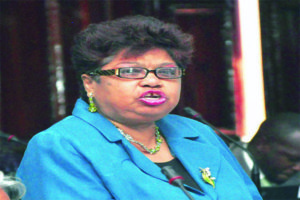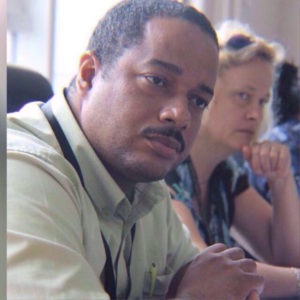People’s National Congress (PNC) General Secretary Amna Ally has dismissed concerns from the Working People’s Alliance (WPA) about her party, noting that the PNC still remains a strong and viable option.

In a brief interview with this publication on Sunday, Ally was insistent that the party remained unmoved by the statements being expressed by Working People’s Alliance (WPA) Executive Dr. David Hinds.
Amidst growing concerns that the PNC continues to show disregard and disdain for the spirit and letter of agreements it signed with key coalition partners, Political Scientist Dr David Hinds had said the PNC must recognize that it cannot win a free and fair election on its own at this juncture in Guyana’s history, as its core support group is no longer emotionally attached to the party.
Speaking with this publication last Thursday during an exclusive interview, Hinds also said current political and electoral demographics are not in the PNC’s favour.
But Ally disagrees
“I have just come back from four meetings in the field, campaigning for this coalition Government. I am confident that we are going to win the next elections,” Ally said. “I don’t have time to discuss David Hinds and any trivial things…
“We have meetings and we discuss these issues. If that is Mr. Hinds’ feeling, so be it. I will answer that by saying that the PNC is very strong, and it has good leadership… I don’t care what Mr. Hinds says. I’m looking after my party, (let) Mr. Hinds look after his party,” Ally declared.

AFC
Meanwhile, the Alliance for Change (AFC) took care to distance itself from Dr. Hinds’s critique of the PNC, and its behaviour in the coalition. When contacted, AFC General Secretary Marlon Williams stressed that Hinds was entitled to his views, and that any issue can be worked out.
“That is his view. That is not my view; that is his view. And in this beautiful democratic country, everyone has their own views, and a right to them, too! Everyone has their interpretations on what is best for Guyana in terms of the coalition.
“The coalition, like any relationship, will have its issues; but, at this junction, the coalition still remains the best option for Guyana. I strongly believe so.
“There are teething issues that need to be addressed, and that’s why the Alliance for Change has written the leader of the APNU. The AFC executive members who have been placed in Government are performing very well, as you can see. Our ministers in Government have been performing exceptionally well. So to paint everyone with a broad brush is not justified.
“We have issues — don’t run away with the wrong idea — but it is good for itself,” Marlon Williams stressed.
Dr. Hinds’s comment comes on the heels of widespread suspicions that the PNC, which now has access to Executive power through the coalition arrangement, had no problem contesting the upcoming 2020 elections alone, hence the disregard and neglect shown to the concerns raised by other coalition partners about some of the decisions that have been made by the David Granger Administration without their consultation and consent in some instances.
“The PNC cannot win a free and fair election on its own at this historical juncture. The demographics are not in its favour. When you add to that the fact that a new generation of African Guyanese (has) no emotional attachment to the party and are more inclined to the APNU, that possibility becomes so remote. The PNC’s only chance of remaining in Government is via a partnership or coalition. In that regard, it needs the AFC and the WPA”, the Political Scientist had said.
He explained that it was important to note that the WPA and AFC bring votes to the Coalition, because they reassure voters that the historical baggage of the PNC would be contained.
“So every time the PNC faction behaves in ways that undermine the AFC and WPA, they alienate not only Indian Guyanese, but the growing African Guyanese section of the society that (is) not wedded to party paramountcy and the notion of PNC invincibility,” he remarked.
Dr Hinds also expressed the strong conviction that “African Guyanese voters are not as monolithic in their political instincts as some PNC leaders would have us believe”; and he supported his argument by stating: “…that community has always accommodated a variety of influences. Whether it was Kwayana’s ASCRIA, Rodney’s WPA, Hamilton Green’s GGG, or Raphael Trotman’s AFC, African Guyanese have shown that they are prepared to be plural in their political behaviour.
“That’s why the notion of a Partnership and a Coalition appealed to them in 2011 and 2015, and I think it would again be a deciding factor in 2020. So those who are not worried about dissatisfaction within the coalition are making a serious miscalculation,” the WPA Executive said.



